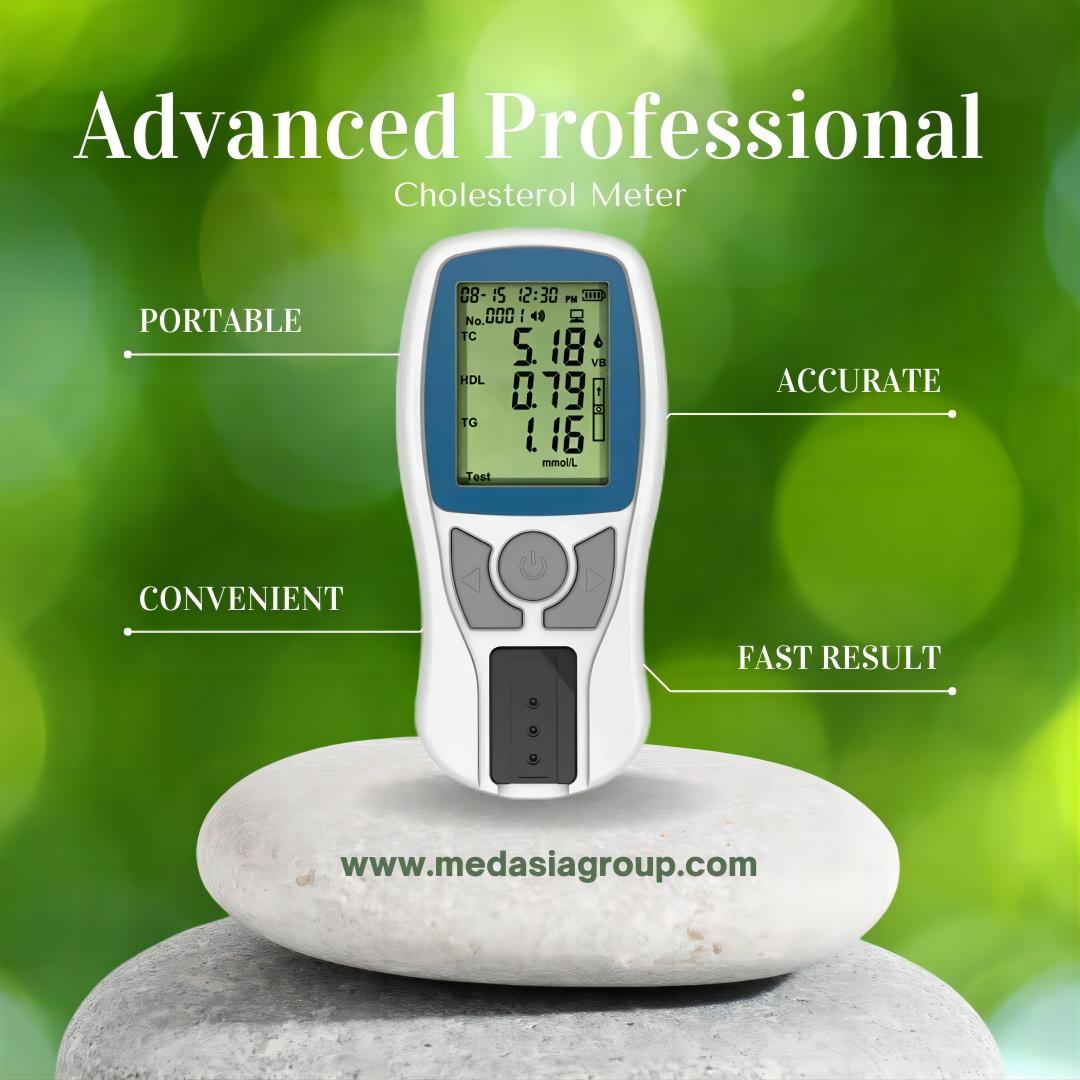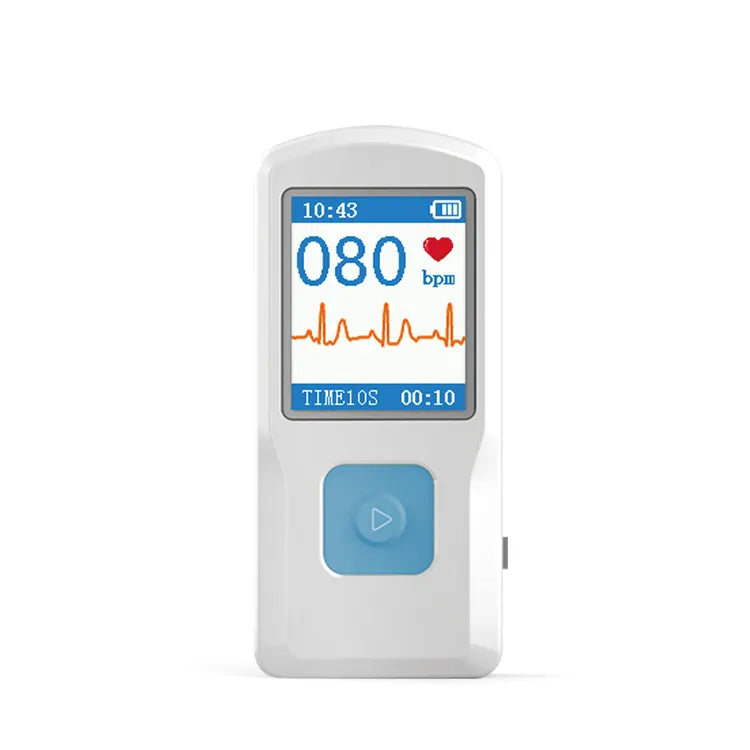A Comprehensive Guide to Measuring High Cholesterol Levels: Everything You Need to Know

High cholesterol is a common health concern affecting millions of people worldwide. But what exactly is cholesterol and why is it important to measure its levels? In this comprehensive guide, we delve into the intricacies of high cholesterol, providing you with everything you need to know about measuring cholesterol levels.
Cholesterol is a waxy substance found in your body that plays a crucial role in various physiological processes. However, when cholesterol levels become too high, it can lead to serious health issues such as heart disease and stroke. That's why it's essential to measure and monitor your cholesterol levels regularly.
In this article, we'll explore the different types of cholesterol, the ideal cholesterol range, and the various tests available to measure cholesterol levels accurately. We'll also discuss the risk factors for high cholesterol and provide practical tips to help you manage and lower it if necessary.

Whether you're curious about your cholesterol levels or concerned about your overall cardiovascular health, this comprehensive guide will equip you with the knowledge and tools you need to take control of your cholesterol and ultimately improve your overall well-being.
Risk factors for high cholesterol levels
Cholesterol is a lipid, or fat-like substance, that is naturally produced by your liver and also obtained from the foods you eat. It is essential for the proper functioning of your body, as it is involved in the production of hormones, vitamin D, and bile acids necessary for digestion. However, there are two main types of cholesterol: low-density lipoprotein (LDL) cholesterol, often referred to as "bad" cholesterol, and high-density lipoprotein (HDL) cholesterol, known as "good" cholesterol.
LDL cholesterol is responsible for transporting cholesterol from the liver to the cells in your body. However, when there is an excess of LDL cholesterol in your bloodstream, it can build up in your arteries, forming plaques that can restrict blood flow and increase the risk of heart disease and stroke. On the other hand, HDL cholesterol helps remove excess cholesterol from your bloodstream and transports it back to the liver for disposal.
To maintain optimal cardiovascular health, it is important to have a healthy balance of LDL and HDL cholesterol. While high levels of LDL cholesterol are associated with an increased risk of heart disease, higher levels of HDL cholesterol are considered beneficial and can help protect against heart disease.
Symptoms and signs of high cholesterol

Several factors can contribute to high cholesterol levels, some of which are controllable while others are not. Understanding these risk factors can help you identify if you are at a higher risk of developing high cholesterol and take appropriate measures to manage it.
One of the primary risk factors for high cholesterol is an unhealthy diet. Consuming foods high in saturated fats and trans fats, such as red meat, full-fat dairy products, and fried foods, can increase your LDL cholesterol levels. Additionally, a sedentary lifestyle, obesity, and smoking can also contribute to high cholesterol.
Genetics and family history can also play a significant role in determining your cholesterol levels. If your parents or close relatives have high cholesterol, you may have a higher risk of developing it as well. Age and gender also influence cholesterol levels, with men generally having higher levels of LDL cholesterol until women reach menopause.
Certain medical conditions, such as diabetes, hypothyroidism, and kidney disease, can affect your cholesterol levels. Additionally, certain medications and hormonal changes, such as those associated with pregnancy or menopause, can also impact cholesterol levels.
Complications of high cholesterol
Unlike many other health conditions, high cholesterol does not typically cause noticeable symptoms or signs. In most cases, it can only be detected through blood tests. This is why regular cholesterol screening is essential, especially if you have risk factors for high cholesterol.
However, in rare cases, individuals with extremely high cholesterol levels may develop visible signs such as yellowish deposits around the eyes or in the tendons, known as xanthomas. These deposits are a result of cholesterol accumulation and can indicate a more severe form of high cholesterol.
It's important to note that even if you don't experience any symptoms, high cholesterol can still pose a significant risk to your health. Regular cholesterol testing is crucial to identify and manage high cholesterol levels before they lead to complications.
How to measure cholesterol levels
When left untreated, high cholesterol can lead to various complications, primarily cardiovascular diseases. The accumulation of cholesterol plaques in the arteries can cause atherosclerosis, a condition that narrows and hardens the arteries, restricting blood flow to the heart and other vital organs. This can lead to serious health problems such as heart attacks, strokes, and peripheral artery disease.
In addition to cardiovascular diseases, high cholesterol can also contribute to the development of gallstones, which are hardened cholesterol deposits in the gallbladder. These can cause abdominal pain, nausea, and other digestive issues.
It's important to take high cholesterol seriously and manage it effectively to reduce the risk of these complications. Regular cholesterol testing and lifestyle modifications can play a significant role in preventing the progression of high cholesterol-related conditions.
Understanding cholesterol blood tests
To accurately measure cholesterol levels, various tests are available. These tests help determine your total cholesterol, LDL cholesterol, HDL cholesterol, and triglyceride levels. The most common cholesterol tests include blood tests, such as a lipid panel or a fasting lipoprotein profile.
During a lipid panel test, a small sample of your blood will be taken, usually from a vein in your arm. This sample will then be analyzed to determine your cholesterol and triglyceride levels. It's important to fast for at least 9-12 hours before the test to ensure accurate results.
In some cases, additional tests may be recommended, such as an apolipoprotein B test or a high-sensitivity C-reactive protein test, to provide a more comprehensive assessment of your cardiovascular risk.
Once you have your cholesterol test results, it's important to understand how to interpret them to assess your cardiovascular health accurately.
Interpreting cholesterol test results
When you receive your cholesterol test results, they will typically include your total cholesterol level, LDL cholesterol level, HDL cholesterol level, and triglyceride level. These values are measured in milligrams per deciliter (mg/dL) of blood.
Ideally, your total cholesterol level should be below 200 mg/dL. LDL cholesterol levels should be less than 100 mg/dL for individuals at low risk of cardiovascular disease, and less than 70 mg/dL for those at high risk. HDL cholesterol levels should be above 40 mg/dL for men and above 50 mg/dL for women. Triglyceride levels should be below 150 mg/dL.
It's important to note that these values can vary depending on your individual circumstances, such as age, gender, and existing medical conditions. Therefore, it's essential to consult with your healthcare provider to determine the target cholesterol levels that are appropriate for you.
Treatment options for high cholesterol
If your cholesterol levels are high, your healthcare provider may recommend lifestyle modifications and, in some cases, medications to manage and lower them. Lifestyle changes often include dietary adjustments, increased physical activity, weight management, and smoking cessation.
A heart-healthy diet is crucial in managing high cholesterol. This involves reducing saturated and trans fats, increasing fiber intake, and incorporating heart-healthy foods such as fruits, vegetables, whole grains, and lean proteins into your diet. Regular exercise, such as brisk walking or cycling, can also help improve your cholesterol profile.
In some cases, medications such as statins or cholesterol absorption inhibitors may be prescribed to lower cholesterol levels. These medications work by reducing the production or absorption of cholesterol in the body.
It's important to work closely with your healthcare provider to determine the most appropriate treatment plan for your specific needs and monitor your progress regularly.
Preventing and managing high cholesterol levels
Prevention is key when it comes to high cholesterol. By adopting a healthy lifestyle early on, you can reduce your risk of developing high cholesterol and related complications.
To prevent high cholesterol, focus on maintaining a healthy weight, eating a balanced diet, and engaging in regular physical activity. Limit your intake of foods high in saturated fats and trans fats, and instead, opt for heart-healthy options.
If you already have high cholesterol, managing it effectively is crucial in preventing the progression of related conditions. This involves following a heart-healthy diet, engaging in regular physical activity, maintaining a healthy weight, and taking any prescribed medications as directed.
Regular cholesterol testing is also important to monitor your progress and ensure that your cholesterol levels are within the target range. By actively managing your cholesterol, you can significantly reduce your risk of cardiovascular diseases and improve your overall well-being.
In conclusion, high cholesterol levels can have serious implications for your health, but with regular cholesterol testing and proper management, you can take control of your cholesterol levels and reduce your risk of complications. By understanding the different types of cholesterol, the risk factors associated with high cholesterol, and the various tests available to measure cholesterol levels accurately, you can make informed decisions about your cardiovascular health. Remember, prevention and lifestyle modifications play a crucial role in managing high cholesterol, so take proactive steps to lead a heart-healthy lifestyle and prioritize your well-being.
Explore More Blogs
The Promising of Cholesterol Testing
What Advantages Of A Portable Mesh Nebulizer?
Hemoglobin Meter: Let's help people to monitor anemia
How to choose a better digital thermometer
Digital Pregnancy Test : Assisting Couples in Conceiving
Portable Fetal Doppler: Bonding with Your Baby
Reference Article
Tsao CW, Aday AW, Almarzooq ZI, Beaton AZ, Bittencourt MS, Boehme AK, et al. Heart Disease and Stroke Statistics—2023 Update: A Report From the American Heart Association. Circulation. 2023;147:e93–e621.
Perak AM, Ning H, Kit BK, et al. Trends in Levels of Lipids and Apolipoprotein B in US Youths Aged 6 to 19 Years, 1999-2016. JAMA. 2019;321(19):1895-1905.
WE RECOMMEND
Related posts
- Subscribe MedInsights
- Subscribe MedInsights
- Subscribe MedInsights
- Subscribe MedInsights
- Subscribe MedInsights











